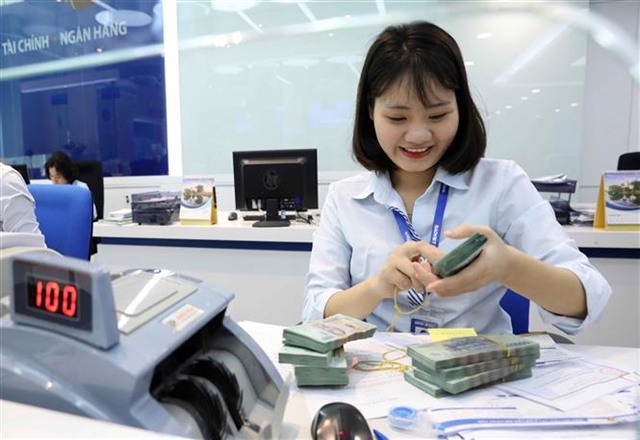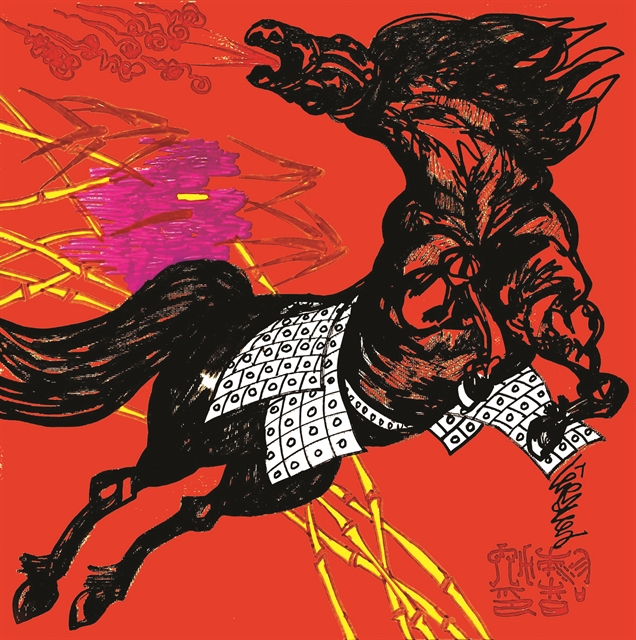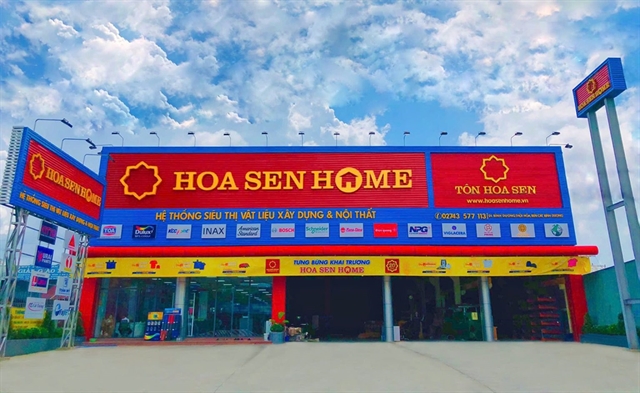 Politics & Law
Politics & Law
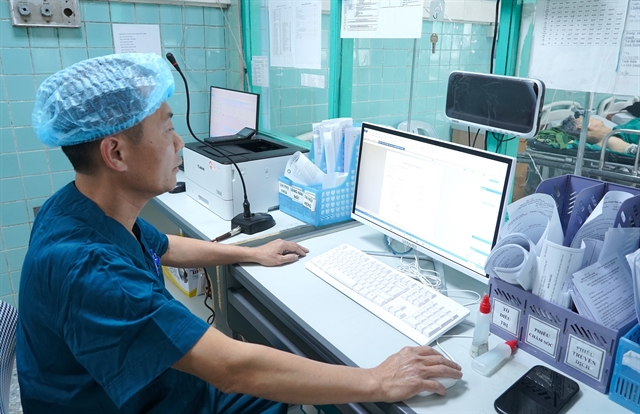
The quality of human resources in Việt Nam is still poor, which leads to low labour productivity, said Minister of Labour, War Invalids and Social Affairs (MOLISA) Đào Ngọc Dzung in the National Assembly question and answer session yesterday afternoon.
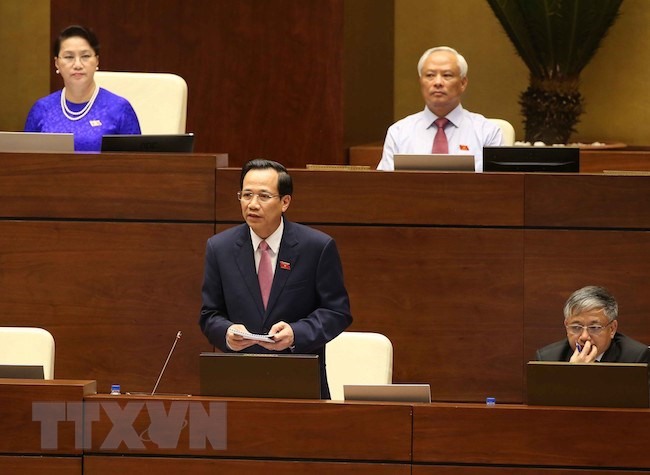 |
| Minister of Labour, War Invalids and Social Affairs (MOLISA) Đào Ngọc Dzung. — VNA/VNS Photo Doãn Tấn |
HÀ NỘI — The quality of human resources in Việt
The minister answered NA deputies’ questions about the situation of the labour market, job creation and training, child care and child abuse prevention.
“The main reason for the low quality of human resources is that training has not caught up with the economic restructuring process,” he said.
At present, agricultural production accounts for 15.34 per cent of the country’s GDP while industrial production is over 33.34 per cent. But by April this year, agricultural labourers accounted for 38.6 per cent of the labour structure, Dzung said.
Besides, job training is inadequate to ensure labourers’ basic needs of salary, safety and social benefits.
In the coming time, the ministry will make job training a top priority to meet the Industrial Revolution 4.0, Dzung said.
The model of school-to-business co-operation in job training has been successful in many countries such as
“This will allow us to launch a new direction in job training”, he said.
Restructuring job training institutions will be essential.
Answering a question about solutions to prevent Vietnamese workers from travelling to neighbouring countries without proper permits, as well as measures to protect the labourers, Minister Dz
ung admitted the issue of illegal labourers was becoming more common.
The MoLISA and Ministry of Public Security were asked to deal with the issue.
At present, about 140,000 people are travelling across borders to work. But the labourers do not have work permits in host countries.
Việt
MOLISA was asked to support seven northern border provinces to sign memoranda of understanding with neighbouring Chinese provinces to manage the Vietnamese guest workers.
In terms of protecting employees’ rights and benefits as well as preventing the dismissal of employees over age 35 in foreign direct investment (FDI) businesses, Dzung told the meeting that the FDI businesses had made big contributions to job creation and economic growth.
“In general, the FDI businesses had paid fair benefits to their employees. Some cases of wrongdoing happened in small-scale businesses”, he said.
At present, the average salary in the large-scale FDI businesses is about VNĐ5.5 million (US$250).
Referring to the news that 80 per cent of FDI enterprises had fired employees aged 30 to 35, the minister said that was false information.
The MOLISA and the NA Committee of Social Affairs had inspected some businesses in
The minister said the Prime Minister agreed with the ministry’s plan for training and re-training unemployed workers in case the FDI businesses shifted their production structure.
Child care and protection
Many deputies also raised questions about child care and child abuse.
Deputy Prime Minister Vũ Đức Đam and Public Security Minister Tô Lâm also joined to explain the situation.
According to Minister Tô Lâm, violence against children was very serious. Sexual assaults account for 84 per cent of violence against children.
“Not only girls were child abuse victims but also boys. And the perpetrators included foreigners in Việt
Investigations are stymied because the victims and their families often do not report to the police, as they consider the crime shameful, said the minister.
The minister recommended measures to increase child care and protection awareness among the people.
“The police will set up hot lines to receive tips on criminal acts as well as suggest a special process for investigating and judging the crimes against child sexual assaults,” he said.
MOLISA Minister Dzung admitted that many cases relating to child abuse were not judged strictly.
Deputy Prime Minister Vũ Đức Đam said the issue deserves more attention.
At present, Việt
He called on society to make child care and protection a top priority. — VNS

